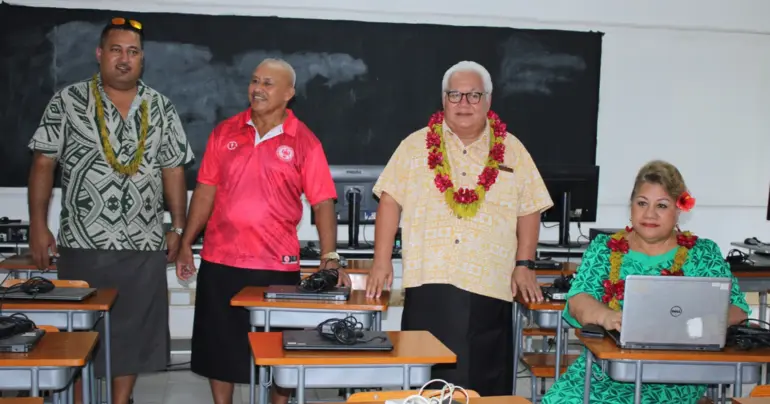Going green in job creation
Work should be good for your people, your economy and your environment.
That’s the message Cristina Martinez has for participants of the International Labour Organisation knowledge sharing workshops this week.
Ms. Martinez is the Environment and Decent Work Senior Specialist of the I.L.O, based in Bangkok, Thailand. She is in Samoa to support the 11 Pacific nations gathered at the Orator Hotel in their discussions on how to get the best, greenest jobs for their people.
In the fight against climate change, decent work should not be neglected, and vice versa, said Ms. Martinez.
“The traditional labour markets tried to promote better, more quality jobs. But you cannot think about quality jobs today if you do not think about the environment because the sustainability of those jobs depends on the resources that we have in this beautiful land,” she said.
In the Pacific, the impacts of climate change are known and felt. Ms Martinez said that means incorporating sustainability into the labour workforce.
Embedding an environmental mind-set into job creation has results.
The I.L.O. estimates that by 2013, there could be 14 million jobs globally in the renewable energy sector if governments make the changes needed.
Currently, 60 percent of renewable energy jobs are concentrated in India and China, Ms. Martinez said.
“Those jobs do not come automatically,” she added.
Governments should make an effort to create sustainable energy marketplaces and bring new jobs to their countries.
“Countries need to do some initiatives, reforms, so that the type of energy mix they have can allow for those jobs to grow.
“If you look at what China and India have done, it’s quite amazing because of the production of solar panels,” she said.
The workshops this week will not be comfortable sitting down sessions, Ms. Martinez warned.
“Countries come to share their best practices with us, with other countries from the Pacific, it’s a space for thinking of this interlinkage between jobs and the environment, and setting up priorities for the work with the countries,” she said.
These knowledge sharing opportunities can be a way to overcome the “tyranny of distance” that affects small islands, Ms. Martinez said, by spending time together to learn in the same space.
Not only that, but focusing on the positives is important, she said.
“We are in a situation in the world where things can be difficult, the level of intensity of disasters, and we acknowledge that.
“But we cannot be so afraid that we just hide inside our homes. We need to be out, we need to acknowledge that at the local level, action can be driving and nobody will tell you don’t have the right actions for your land, for your home.
“We need to be positive about our power.”











